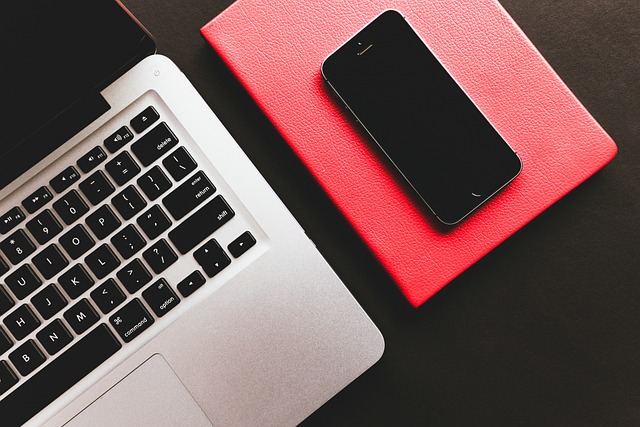What Is the Impact of Social Media on Mental Health?
Let’s break it down. On one side, social media platforms can boost your mood by allowing you to stay in touch with friends and share positive moments. It’s like having a digital scrapbook of happy memories at your fingertips. But, there’s a catch. The constant comparison to seemingly perfect lives showcased online can lead to feelings of inadequacy and low self-esteem. It’s akin to looking through a glossy magazine and thinking everyone else’s life is better than yours.
Moreover, the addictive nature of social media can disrupt your daily routine and sleep patterns. Have you ever found yourself endlessly scrolling, losing track of time? That’s the allure of instant gratification and the fear of missing out, known as FOMO. This overuse can cause stress and anxiety, making it harder to unwind and relax.
Let’s not forget the echo chamber effect. Social media often reinforces existing beliefs by surrounding us with like-minded individuals, which can create a skewed perception of reality. This tunnel vision can make it harder to empathize with others or see the broader perspective.
In essence, while social media offers a way to connect and share, it’s crucial to be aware of its potential pitfalls. Finding a balance and setting boundaries can help mitigate its impact on mental health. The next time you scroll, ask yourself—how is this affecting me?
The Double-Edged Sword: How Social Media Shapes Our Mental Health

Then there’s the constant barrage of notifications, a relentless stream of updates that can easily overwhelm the mind. It’s like being in a crowded room where everyone is talking at once. The pressure to stay updated and respond promptly can lead to stress and even burnout.
However, let’s not forget the positives. Platforms like Twitter and Instagram can be a treasure trove of support, whether through mental health communities or inspirational content. It’s a space where we can share our struggles and triumphs, finding solace in others’ experiences.
In the end, how social media impacts our mental health is a balancing act. It can be a powerful tool for good or a source of stress and comparison. The ultimate goal is to use it mindfully, ensuring it enhances rather than detracts from our well-being.
Social Media and Mental Health: The Unseen Consequences
Let’s face it—scrolling through endless feeds of perfect selfies and glamorous vacations can feel like a non-stop comparison game. The pressure to measure up to these seemingly flawless lives can create a sense of inadequacy. Ever find yourself wondering if you’re missing out because your reality doesn’t match up with those picture-perfect moments? You’re not alone.
Social media can also be a breeding ground for anxiety and stress. Think of it as a loud, crowded room where everyone’s shouting their opinions. It’s easy to get overwhelmed and feel like you’re not keeping up with the constant stream of news and updates. And let’s not forget the dopamine rush of likes and comments. It’s a high that can lead to a low when the notifications stop.
Furthermore, the “always-on” nature of social media means we’re rarely unplugged. It’s like having a conversation with someone who never stops talking. The constant barrage of messages and updates keeps our minds in a perpetual state of alertness, making it tough to relax and unwind.
In essence, while social media connects us to a global network, it also weaves in subtle, yet significant, threads of stress and comparison. These unseen consequences can slowly erode our mental health, leaving us feeling more isolated despite our ever-expanding online circles.
Scrolling to Stress: The Impact of Social Media on Emotional Well-Being
Social media platforms are designed to grab your attention, and they’re pretty good at it. They use endless feeds and constant notifications to keep you hooked, often leading to what’s called “doomscrolling”—that endless scroll through bad news and negative posts. Ever noticed how your mood dips after a long session on these apps? That’s not a coincidence. The constant barrage of curated highlights from others’ lives can trigger feelings of inadequacy and anxiety.
It’s not just about what you see; it’s also about how it’s presented. Algorithms often prioritize sensational or emotionally charged content, which means you’re more likely to encounter posts that evoke strong reactions. This can lead to heightened stress and a skewed perception of reality. Think of it like having a magnifying glass constantly pointed at every flaw in your life.
Moreover, the pressure to maintain a perfect online persona can be overwhelming. Trying to live up to these idealized images or to receive validation through likes and comments can create a rollercoaster of emotions. Social media, with its fast-paced and often superficial interactions, can leave you feeling more isolated than connected.

The Hidden Effects of Social Media: Navigating Mental Health Challenges
Think about it: every time we see curated images of success and happiness, we might start to compare our own lives unfavorably. This constant comparison can lead to anxiety, stress, and even depression. It’s like looking at a magazine cover and thinking, “Why don’t I look like that?” when, in reality, those images are often edited and idealized.
Moreover, the addictive nature of social media platforms doesn’t help. Scrolling endlessly through posts and notifications can disrupt sleep, concentrate mind, and even lead to feelings of loneliness. It’s almost like the platforms are designed to keep us hooked, blurring the line between social interaction and isolation.
And let’s not forget about the pressure to constantly be ‘on’ and share updates. The fear of missing out (FOMO) can drive us to spend more time online, further straining our mental well-being. It’s a bit like being caught in a whirlwind where you’re simultaneously engaged and overwhelmed.
Navigating these hidden effects means being aware of how social media impacts you personally. It’s about finding a balance that lets you enjoy the benefits without letting it take a toll on your mental health.
